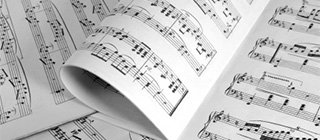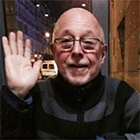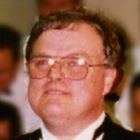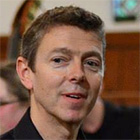
The first gay music group in Paris appeared in 1982. It was a singing and dancing troupe, first called Chœur Accord, then renamed Les Caramels Fous in 1985.
Paris' first gay choir was founded in 1994 by Clark Taylor, a former member of the New York City Gay Men's Chorus, and eight other amateur singers under the name International Gay Men's Chorus of Paris (CIGAP). They took their cue from the United States, where the first gay choir in history, the San Francisco Gay Men's Chorus, was founded in 1978.
CIGAP's ambition was to give a voice to the joys and sorrows of the gay community, which had been heavily affected by AIDS, through an eclectic and multilingual repertoire performed by choristers of all origins.
In 1996, the choir's name was changed to Mélo'Men, replacing the original acronym CIGAP.
Conviviality, a demand for musical quality, a commitment to remembrance, militancy and solidarity are the choir's defining values. They feed a dense and varied activity which takes the form of:
Since its creation, Mélo'Men has welcomed nearly 500 choristers from a wide variety of nationalities, conducted by a succession of three different Choir Directors. The choir has performed 309 times in 35 cities and 10 countries.
Mélo'Men is a member of the Centre LGBTQI+ Paris Île-de-France, the Inter-LGBT and the Collectif Archives LGBTQI+, which works for the community to safeguard its memories, tell and disseminate its stories and transmit its cultural heritage. It is also a member of Legato, the European association of LGBTQ+ choirs.

The choir's repertoire includes 425 works composed by 264 artists and sung in 26 different languages.
It includes classical, secular and religious works, French and international variety, traditionnal songs, excerpts from musicals and film music, Christmas carols, gospels and some barbershop.
Attentive to supporting musical creation, Mélo'Men has also commissioned three original works from contemporary composers:

July 1994 to July 1995: Richard Bachand
Richard Bachand is a French-Canadian pianist, accompanist and choral conductor. He studied piano in the United States, in particular at the Dalcroze School in New York, and in Paris with Jeanne Manchon-Theis and Jean Fassina. He worked as a conductor with the American conductor Marc Mir. He has worked with the Jeunesses Musicales d'Italie and the US State Department. He conducted The Voice of Freedom (link in French), a Parisian gospel choir and, from 2000 to 2015, the choir AIME, Association Internationale Musique Ensemble.

September 1995 to July 1996: David Hogan
Born in Virginia in 1949, Davis Hogan studied music in the United States at the Peabody Conservatory in Baltimore. In France, he worked with Nadia Boulanger from 1971 to 1973. As a tenor soloist, he gave numerous recitals in the United States, England and France. He was also the titular cantor of several American cathedrals. In 1971 he founded a school for young composers and taught at the Baltimore and San Francisco conservatories. In 1992 he was appointed to the American Conservatory at the Château de Fontainebleau. He died on 17 July 1996 in the explosion of TWA Flight 800.

September 1996 to present: John Dawkins
John Dawkins was born in the UK and studied music in Reading. His teachers included Eric Parkin on piano and Brian Fawcett on choral and orchestral conducting. At the age of 24 he was appointed choral conductor of the Windsor Conservatoire. He moved to Paris in 1988. From 1991 to 1995 he was assistant conductor of Françoise Legrand's men's choir. In 2002, he participated in the creation of the Rainbow Symphony Orchestra (link in French), an LGBTQI+ symphony orchestra of which he is the artistic director. From 2006 to 2015, he directed the Ensemble Vocal Romantica (link in French), the mixed choir of the city of Torcy. He regularly participates in theatrical productions and teaches English diction for the Jeune chœur de Paris at the Conservatoire à rayonnement régional de Paris (link in french).